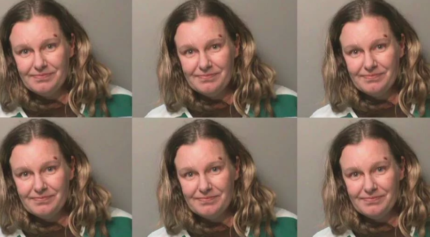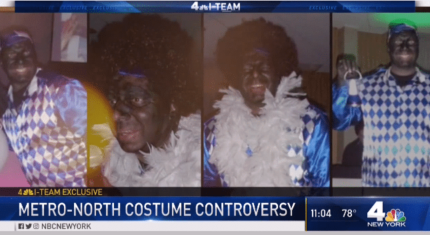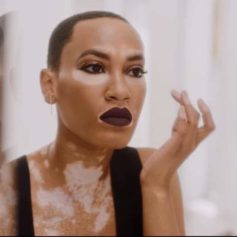If you want to film a documentary about Asians, you film Asians right? If you want to dig deep into the lives of Hispanics, you would go talk to Hispanics rights? If you wanted to shoot a movie all about Europeans you would probably grab some Europeans correct? So why when it’s time to do a photo shoot celebrating African Queens, did Numero grab a 16-year-old white girl?
The March edition of Numero, which is a very popular international magazine, features an editorial spread titled “African Queen.” The only problem is, the model herself isn’t African at all.
There are tons of black models waiting for their chance in an industry that is predominantly run by Caucasians or mixed women, and the one photo shoot that would have been a black model’s time to shine was given to a white teenager.
Ondria Hardin, the young model who posed for the not so “African Queen” shoot, was covered in black face and black body as she was given the duties of trying to bring forth the African spirit.
If you think this sounds utterly ridiculous, join the club.
Now if you are trying to defend the magazine and you’re thinking: “Well maybe they just didn’t have any African models handy,” please realize that Hardin herself is signed to Ford Models – one of the biggest modeling agencies on this planet.
In other words, there were plenty of African or at least African American models who could have easily done the shoot instead. But no. As Foudre, an online photo site said, “Why hire a black model when you could just paint a white one!”
According to Jezebel, over 80 percent of the models at this years NYC fashion show were white. Without a doubt there are more than twice the number of white models in the industry than there are black models, but that doesn’t mean the desire to break into the fashion industry isn’t prominent amongst African Americans.
What it means is that the industry itself is discouraging African American females from even trying to get their foot in the door. Let’s face it – after years of rejection in the modeling industry and struggling to book jobs, every black model was probably thrilled to hear of the African Queen shoot. For sure this gig was perfect for them right? No. Black models apparently aren’t even good enough to portray being black in a photo shoot – the white girl obviously has much more experience and can bring much more emotion to the set.
It’s sickening. Even when a black models networks and does whatever it takes to meet the right people, builds the perfect portfolio, and spends all her time learning how to “smise” (smile with your eyes) – she is usually recommended to be some sort of bar tender, or a photographer at best but she just can’t be on the other side of the camera.
What makes this even more troubling is the simple fact that black face is becoming more and more common and fewer people are finding it to be a problem.
A New York state lawmaker received some harsh criticisms for dressing in black face for a costume party, but failed to offer a sincere apology.
“Anyone who was offended, I am sorry that they were offended,” he said after he was urged to apologize for the offensive black basketball player costume.
In other words, he was sorry that we didn’t have a sense of humor – not because he felt like what he did was wrong.
And then what about the students who had the audacity to put on black face just to act out their version of Chris Brown beating Rihanna back in 2009? Why was there an entire gymnasium and school staff that saw nothing wrong with this?
People are trying to suggest that black face is nothing more than a costume, but that holds many other meaning as well.
Why is being black a costume? Why is being black funny at a costume party? Why is being black being portrayed as the reason Chris Brown beat Rihanna? Why is being black good enough to get you in a music video shaking your butt, but not quite good enough to get you in front of the camera for an international magazine that is dedicated to being an “African Queen” ?
As Assemblyman Karim Camara explained, black face “brings back the memories of African-Americans being reduced to buffoonery just to gain access to the entertainment industry.”
Let’s face it. The industry says that if you need a sexually driven photo shoot for a trashy magazine about nothing but T&A then a black girl works just fine, but the minute you need a girl to be high fashion, beautiful, and a “queen,” it’s only the young white model that has what it takes to fill those shoes.


